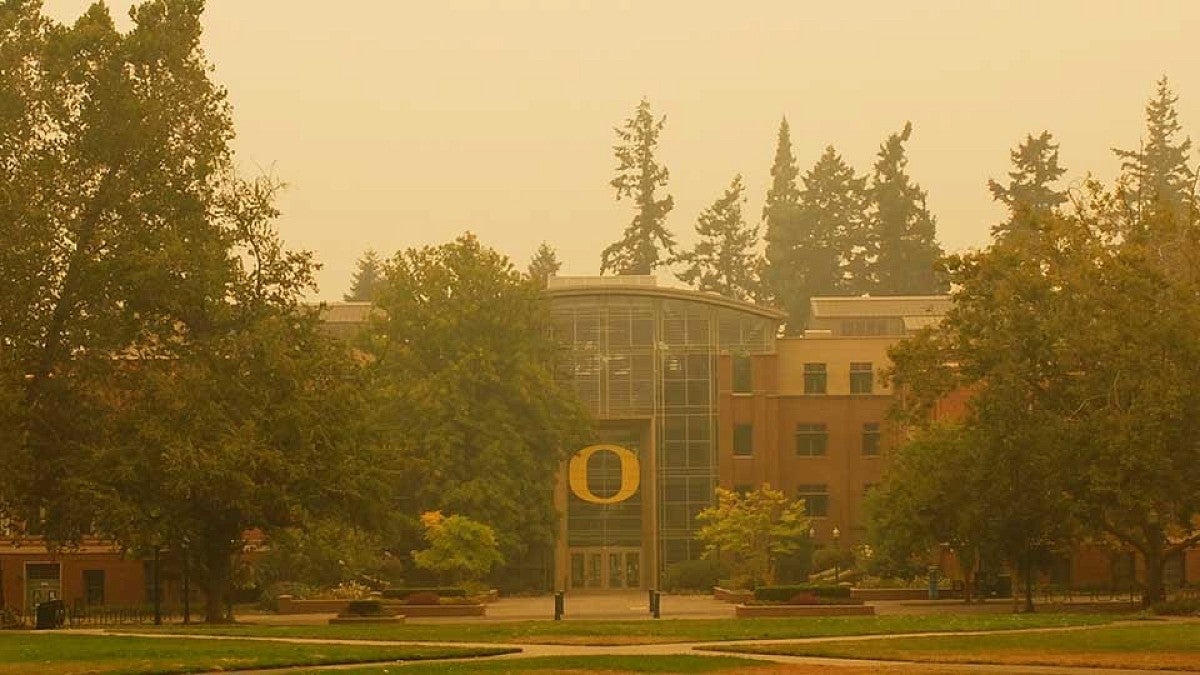Oregon summers bring sunshine and increased outdoor activity, but they can also produce conditions that affect members of the campus. Severe heat- and wildfire-related air quality conditions may result in public safety advisories that spur questions and concerns from employees and students.
The Office of Human Resources provides supervisors with guidance about working conditions during the summer to ensure the safety and comfort of employees when temperatures rise.
During extreme conditions, employees should communicate with supervisors regarding concerns about workspaces or assignments and use their best judgment to stay safe and comfortable. Employees can also reach out to Environmental Health and Safety with concerns. Safety sheets for avoiding heat stress provide further guidance.
In addition to higher temperatures, summer brings wildfire season. According to Predictive Services of the National Interagency Fire Center, significant fire potential is expected to increase to above normal for portions of southern and central Oregon into southeast Washington during June, and then expand to much of the Northwest by July and continue into September. Visit the state of Oregon’s website for the most current wildfire information.
Oregon fire officials, utilities and emergency responders around the state are preparing for another potentially severe wildfire fire season, according to a recent article in The Oregonian. While university campuses are at low risk for an actual wildfire, University of Oregon community members living in some areas are at much higher risk.
“Employees are encouraged to proactively plan for wildfires to protect their property to the greatest extent possible and to prepare for potential evacuation should a wildfire threaten their home,” said Krista Dillon, director of operations for Safety and Risk Services. The National Fire Protection Association provides resources and wildfire preparedness tips.
As with other inclement weather events, employees who are unable to report to work because of the extreme weather or wildfires may use accrued vacation, compensatory time, exchange time, personal leave or leave without pay to cover the missed work time, if applicable and approved to the extent approval is required. Use of accrued sick leave is appropriate only in the case of illness.
The university typically maintains regular operations during heat advisories and periods of low air quality, including the effects of wildfire smoke, with no change to work or class schedules. Should a rare occasion disrupt regular operations, the standard procedures apply for weather-related notifications such as cancellation, delayed start and early closure decisions.
If the air quality index reaches a certain threshold, supervisors may determine that outdoor work at the university should be shortened or stopped. Employees should work with their supervisor and Environmental Health and Safety for evaluation of whether use of a respirator is required. If required, it will be provided by the employer. Employees may also be approved for voluntary use of a respirator after receiving OSHA-required training through Environmental Health and Safety. The wildfire smoke safety sheet provides more information.
Campus Planning and Facilities Management, in collaboration with Safety and Risk Services, monitors ventilation systems in UO buildings. Mitigation plans are in place to adjust air handling systems, where possible, to minimize the effects of internal and external factors to the air quality inside buildings.
Human resources provides guidance about working conditions when air quality issues exist and during heat advisories to ensure the safety and comfort of employees. The wildfire smoke safety sheet offers helpful information about monitoring air quality impacted by wildfire smoke. Supervisors are strongly encouraged to review the guidance and follow best practices.
The HR website is the go-to resource for inclement summer weather or other environmental conditions at work.


